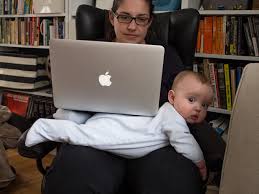12 April 2018
The Gender Pay Gap
A ‘burning injustice’ – really?
By Lynda Goetz
 I have every sympathy for those women in the BBC who find themselves, however well paid out of the taxpayers licence fee, paid substantially less than male colleagues. Likewise for Tamara Mellon, the entrepreneur, who has confessed that she was, for many years at Jimmy Choo, paid less than male colleagues not as senior as her. Then there is Claire Foy, paid less than her co-star Matt Smith for her starring role in The Crown. I suspect however that, as Charles Moore points out in a Telegraph commentary piece, not everyone is going to feel particularly bothered when such women are already making many times more than the national average wage. Whilst these situations are indeed unfair, they represent a tiny proportion of any current issue over gender inequality. Both the BBC and the Netflix issues can effectively be argued in terms of star quality and box-office appeal. Outright discrimination was made illegal way back in the 1970s with the Equal Pay Act (1970) and the Sex Discrimination Act (1975) – replaced in 2010 by the Equality Act. The situation of Tamara Mellon could be seen as the product, as even she conceded, of her own lack of training and experience, as well as male prejudice. But what about the wider problem?
I have every sympathy for those women in the BBC who find themselves, however well paid out of the taxpayers licence fee, paid substantially less than male colleagues. Likewise for Tamara Mellon, the entrepreneur, who has confessed that she was, for many years at Jimmy Choo, paid less than male colleagues not as senior as her. Then there is Claire Foy, paid less than her co-star Matt Smith for her starring role in The Crown. I suspect however that, as Charles Moore points out in a Telegraph commentary piece, not everyone is going to feel particularly bothered when such women are already making many times more than the national average wage. Whilst these situations are indeed unfair, they represent a tiny proportion of any current issue over gender inequality. Both the BBC and the Netflix issues can effectively be argued in terms of star quality and box-office appeal. Outright discrimination was made illegal way back in the 1970s with the Equal Pay Act (1970) and the Sex Discrimination Act (1975) – replaced in 2010 by the Equality Act. The situation of Tamara Mellon could be seen as the product, as even she conceded, of her own lack of training and experience, as well as male prejudice. But what about the wider problem?
Do the gender pay gap statistics for this country, which were released last week, really reveal, as Theresa May claims, a ‘ burning injustice’; or are they, at least to some extent, the result of women and their families making life choices and deciding on their priorities? In the current climate this viewpoint is not going to be a popular one. It goes against all the current propaganda and protest. However, as we all know, statistics can pretty much be made to show anything one wants, provided they are presented in the right way. The national average gender pay gap in this country is 18%. In some companies (e.g. Ryanair) it rises to 79%, which is astronomical. However, what it shows is not necessarily large-scale ignorance or flouting of the law, nor necessarily gender bias, but the fact that many women are employed in part-time roles or roles which are simply not as senior as those of male colleagues. Why would this be the case?
 One of the possible answers to what is a very complex situation, is a simple one and yet one which runs so counter to current thinking that it will be leapt on and torn to shreds in seconds. Many women make this choice because in the overall scheme of things they put their families before their work. They would prefer to take time out or work fewer hours so that they can have the responsibility (and pleasure) of bringing up their own children rather than handing the job over to someone with an NVQ in childcare who is, however caring, not the child’s parent. Why does nobody currently want to admit this might be the case? In his article Opportunity Gap, Fraser Nelson claims that in this country we have some of the highest childcare costs in the developed world and that this is one of the reasons why, for many women, going out to work does not make economic sense. That may be so, but why should the cost of childcare be cheap? These are our most precious ‘possessions’, the one thing in the world we would be most devastated to lose, and yet seemingly we want to pay as little as possible for other people to look after them for us whilst we go out and earn money elsewhere. Does this really make sense for the individual or for society? It’s true that, as Nelson points out, most childcare costs are paid out of taxed income and are not tax-deductible, which has always struck me as wrong. If government really wants to encourage women back to work then changing this would be a good starting point.
One of the possible answers to what is a very complex situation, is a simple one and yet one which runs so counter to current thinking that it will be leapt on and torn to shreds in seconds. Many women make this choice because in the overall scheme of things they put their families before their work. They would prefer to take time out or work fewer hours so that they can have the responsibility (and pleasure) of bringing up their own children rather than handing the job over to someone with an NVQ in childcare who is, however caring, not the child’s parent. Why does nobody currently want to admit this might be the case? In his article Opportunity Gap, Fraser Nelson claims that in this country we have some of the highest childcare costs in the developed world and that this is one of the reasons why, for many women, going out to work does not make economic sense. That may be so, but why should the cost of childcare be cheap? These are our most precious ‘possessions’, the one thing in the world we would be most devastated to lose, and yet seemingly we want to pay as little as possible for other people to look after them for us whilst we go out and earn money elsewhere. Does this really make sense for the individual or for society? It’s true that, as Nelson points out, most childcare costs are paid out of taxed income and are not tax-deductible, which has always struck me as wrong. If government really wants to encourage women back to work then changing this would be a good starting point.
However, there are other angles. If you are a woman without the ability to command a high salary it probably would not make economic sense, even with tax deductible child care, for you to park your children and work away from home. Is this really so terrible? Does the state consider it is better for women, for children, or for society in general for parents to be less involved in parenting? If you are a woman in a position to earn a high salary as a lawyer, doctor, accountant, corporate high-flyer or whatever, should you feel this is what you have to do, when your instincts tell you that, for a few years at least, you would like to dedicate yourself to bringing up and passing on the benefit of your education to the next generation you have brought into the world? In the arguments for equality we seem to have lost sight to some extent of our basic human instincts.

It is almost certainly true, as Yuval Noah Harari says in his celebrated non-fiction best-seller, Sapiens, that since the industrial revolution, family and community has been replaced to a large extent by the market and the state. We now expect the state to take responsibility for our health, our education and other aspects of life in return for our work and payment of taxes. For many women and their families, this is how they want it to be, and society as a whole has moved towards this, but for those whose instincts tell them that they would rather be responsible for their own children, we seem to reserve nothing but denigration and opprobrium. Why on earth would you rather spend time clearing up baby sick, tidying toys and showing your children the delights of nature when you could leave this to someone else and be earning the admiration and respect of adults by running for political office or being in charge of your local hospital?
The issue of gender inequality is, like everything about modern society, complex. Why, for example, do far fewer women choose to study engineering or technological subjects, leaving men in charge of these important areas? Why are there not more crèches in workplaces? Why are so few men taking up offers of paternity leave? All the time women bear the children (and admittedly, the way we are heading this may not always be the case) there can be no simple solutions and attempts to come up with them will almost certainly end up demonstrating the law of unintended consequences. However, in a week which has also had the media and the politicians agonising over the causes of increased crime rates, perhaps we should listen to those ordinary members of the public who tentatively suggest that a general lack of discipline in society and a rather serious lack of parenting skills could also be a part of the problem, as in our haste to promote gender equality we devalue anything other than full-time work as a sane choice for the modern female.


